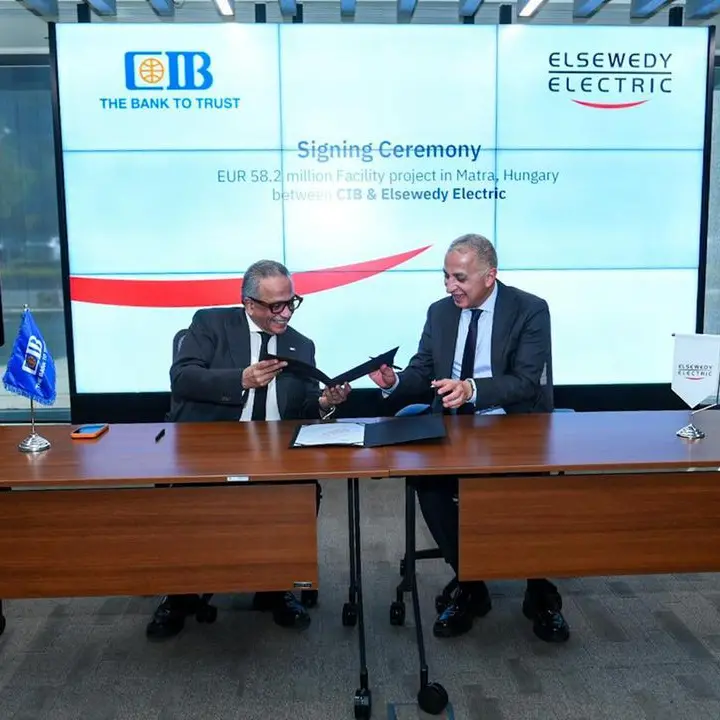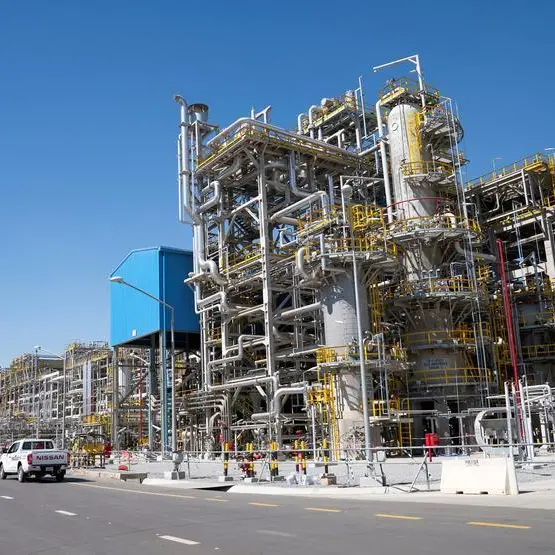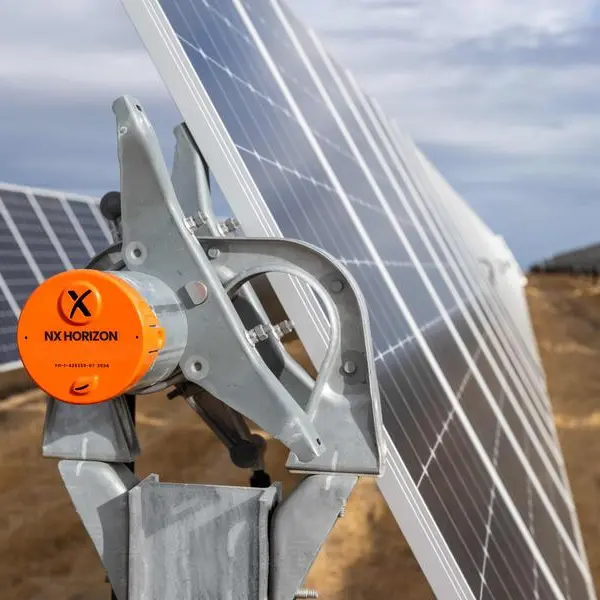PHOTO
Fondazione MAIRE, established by Italian engineering and technology giant MAIRE, released a global study on workforce training towards net zero during COP28 in Dubai. The study, titled 'Winning the challenge of climate goals through the creation of skills and competences worldwide,' is based on research conducted by IPSOS, which interviewed 1,700 people across 10 countries, including the UAE, Saudi Arabia and Algeria from the Arab world.
"We wanted to understand perceptions related to the importance and growth of skills and competences for energy transition because climate goals would be impossible without investing in them," said Ilaria Catastini, Director of Fondazione MAIRE, during an interview on the sidelines of the event.
She said the 10 countries were selected from developed and emerging economies based on their relevance in terms of energy transition and MAIRE's networks and relationships.
The study found that delivering net zero by the UN's agreed target of 2050 requires a step change in professional and vocational training to equip people to design, build and use technology and infrastructures for a decarbonised economy.
Catastini, who was the coordinator for the study, noted that the results presented an exciting picture of commonalities and variances.
"I was surprised but happy to be surprised. I was expecting the old economies – Europe, the UK and the US – to be much ahead, but our research showed that Saudi Arabia and the UAE are very dynamic, and the respondents perceive their governments to be more committed."
She said one of the experts from Algeria interviewed for the study said his country and the wider region were ready for the opportunities emerging out of the energy transition.
"This is very important to me because we don't feel that observing from the West."
The study found that education is emphasised more in the UAE, Algeria, and Saudi Arabia, with higher percentages than in other countries.
"One of the most interesting findings from this research is that opportunity of women's inclusion is recognised," she said. The recognition of education and career opportunities for women in a rapidly expanding sector was more pronounced in Saudi Arabia and India.
Excerpts from the interview:
How would you rate the region's awareness of energy transition based on the study?
The study found that 96 percent of the respondents worldwide had heard of the energy transition with a high familiarity in advanced economies. In the Middle East, Saudi Arabia, Algeria, and the UAE occupied a halfway position regarding familiarity with the energy transition process. While perceived as an urgent and necessary process to address climate change, the priority accorded to energy transition varied among countries. Unlike Western economies, the UAE and Saudi Arabia view energy transition as a priority and are ranked by respondents as ahead of other countries. However, in Algeria, the study found that the energy transition is a priority more for the individuals than the government, with the country lagging behind others.
However, all the countries agreed on the growth of skills and competences with some underlining it is as urgent. The importance and urgency of education and training are particularly recognised in the Middle East; countries like Italy and the UK believe otherwise.
For us, the study confirmed that countries that have been perceived as having to fill a gap are doing a lot, and these efforts are recognised by their populations.
People also see benefits and opportunities associated with energy transition. In the UAE, energy transition is closely related to environmental benefits such as combating climate change and global warming and reducing greenhouse gas emissions. In Saudi Arabia, it is associated with creating new job opportunities. Overall, people now recognise job opportunities related to energy transition, and that's the reason why they need to have the skills to grow.
At MAIRE, we believe that the world needs humanist engineers because there are a number of solutions that have to be discovered, and scaled up. The humanist engineer is a central figure in the energy transition. [The report defines the humanist engineer as a professional who combines technical expertise with a keen awareness of social, economic, and environmental implications – editor’s note]
The survey shows that more than 83 percent expressed the need for training to drive the energy transition, while 40 percent expected companies to prioritise creating skills and competences. How should companies approach these expectations?
Energy transition will require existing workers to reskill, and it will also require new workers with specific skills and competences. For example, we will need people who are knowledgeable about renewable energy and who can apply those skills to integrate with other sectors.
What emerges from this research is that companies need to allocate resources for training their personnel, and possibly consider investing in resources externally. For example, MAIRE works with 24 universities worldwide through research agreements, lectures, and scholarships. It's not just a matter of money but also a matter of culture, vision, and time. Through the foundation, we are reaching out to younger individuals, such as high school students, as it's essential to engage with them and help them understand the jobs of the future. We are ready to share our experience with other companies and foundations. We also recognise companies don't have all the resources, so the public sector needs to be roped in.
Was the study able to pinpoint skills crucial for a successful energy transition?
Future energy transition professionals will require soft and technical skills but the study found that the requirements vary across countries. For example, in Saudi Arabia, Algeria and the UAE, in the realm of soft skills, the emphasis was on creativity, with Saudi and UAE also emphasising problem-solving skills. These are new skills where these countries are concerned. They are used to the workforce being told what to do whilst energy transition needs clever people who use creativity to solve problems. On the other hand, where technical skills are concerned, respondents from Saudi Arabia and Algeria emphasised knowledge of renewable energy sources, while in the UAE, it was knowledge of environmental impact. Technical skills such as lifecycle assessment and environmental impact assessment aren't commonplace.
What jobs and economic opportunities do you foresee emerging from the energy transition?
I believe hundreds of new jobs are coming up, but the common element is the need for a different mindset. For example, with new products emerging from the recovery or recycling of scrap and waste with different supply chains and other off-takers, we would need people who see waste or scrap as a valuable resource rather than something to be discarded and know about new feedstocks, markets and technologies.
Another example is eco-design, where products are designed to consume less energy, use less material or can be disassembled for recycling. We will need product engineers and designers who can think along those lines. We will need supply chain professionals who can create reverse logistics systems in circular economies for products and packaging that need to be taken back to be recycled. The new hydrogen economy will need people who can design distribution systems emphasising safety.
We will need people with new ways of thinking to valorise the captured CO2 for other applications, develop technologies for alternative or low-carbon fuels for marine transportation, planes, trucks, cars, and trains, or design new transportation systems. Even the building construction sector needs to change regarding energy efficiency and new materials.
Energy transition will also create new digital jobs because, without digital transformation, you will not be able to achieve mapping of products, origins of feedstock or output. You need to know what you are looking at to implement energy transition effectively.
Respondents have also called on companies to prioritise the innovation of sustainable products and services, and adopt new production processes. How would you link these to the energy transition?
If I take MAIRE Group as an example, we have a bold sustainability strategy. We want to reduce our CO2 emissions and reach carbon neutrality for Scope 1 and 2 emissions by 2030.
We want to be enablers of energy transition for the industry worldwide, which is both a business goal and a sustainability goal. Through our sustainable technology solutions for decarbonisation, production of low-carbon fuels and the circular economy, we can enable other companies to advance with the energy transition.
We have set a carbon neutrality target for Scope 3 emissions by 2050. We are now working on the challenges associated with measuring these emissions. We are also working with vendors in this regard. In the future, we will need to choose the best vendors but we believe we must help them. So, we are engaging with them to explain our goals, understand what they are doing, and see if they need our help.
We are consistent and include sustainability in our business strategy and industrial strategy. I think that this is the key for all companies. What is unique to MAIRE is that sustainability is also integrated into our financial structure.
You don't see a lot of listed companies issuing bonds where the payout is linked to CO2 reduction targets. For our sustainability-linked bond, we have set challenging intermediate targets. For Scope 1 and 2, we have committed to a 35 percent reduction by the end of 2025 compared to the 2018 baseline. We are also one of the few companies worldwide that has set for Scope 3 emission reduction target for a Sustainability-Linked Bond, which is -9 percent of emissions intensity compared to the 2022 baseline. We worked a lot on this because we want to be an example for other companies.
(Reporting by Anoop Menon; Editing by Dennis Daniel)
Subscribe to our Projects' PULSE newsletter that brings you trustworthy news, updates and insights on project activities, developments, and partnerships across sectors in the Middle East and Africa





















